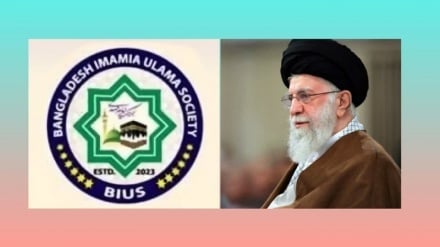How was Prophet of Islam's personal and social disposition? Some educational points
-

How was the personal, social & political disposition of Prophet Mohammad? Some educational points
Pars Today- History bears witness that the great Prophet of Islam would always speak to the faithful and his people clearly and unequivocally. He would never politicize his deeds and, if necessary, would show leniency.
Although the Messenger of God (Blessings of God upon him and his progeny) had reached the highest degree of infallibility, did not stop striving in a way that he would gain more and more proximity of God till the moment of death as, this way, he would become more prefect on a daily basis. This means that the Prophet Mohammad (Blessings of God upon him and his progeny) in the first year of his mission was not equal to the Prophet 23 years later. He had advanced in the divine proximity in 23 years.
Pars Today has selected excerpts of his life which we present you here:
Ritual behavior
The Prophet would never neglect worship although he enjoyed the loftiest degree before God. He would cry in his prayers and supplications every midnight. One night, Umm Salamah noticed that he was not in the room. She went and found him praying, crying and seeking forgiveness with the words, "O God! Do not leave me alone for a single moment." This made Umm Salamah cry. The Prophet turned to her and asked, "What are you doing here?"
She said, "O Messenger of God! Why do you cry and appeal to God not to leave you alone while you are the dearest one with God and you have no sin?"
The Prophet answered, "If I become negligent of God, what will protect me?"
This is a lesson for us. On the day of dignity, meanness, comfort, hardship, or the day when the enemy has besieged us, the day when the enemy imposes itself on us with awe and pomp, to remember God, to remember Him, to rely on Him and appeal to Him in all these conditions; this is the great lesson of Prophet Mohammad (Blessings of God upon him and his progeny).
Personal behavior in clothing and eating
The Prophet of Islam would wear simple clothes and eat whatever was provided for him. He didn't have a special kind of food and would never reject a food as unpleasant.
Moral behavior
One of the wives of the Prophet was asked to describe his morality. She said, "His temperament was the Qur'an. I mean whatsoever you read in the Qur'an about the practice, deeds, conduct and disposition of a person as good and pleasant ones, they were incarnated and personified in him."
This means that our morals should be compatible with what we say and invite to.
Scientific behavior
In addition to the verses of the Qur'an which read, "Purifies them and teaches them the Book and wisdom", a hadith from the Prophet has been mentioned which reads, "God has raised me a teacher." He was a simplifying teacher. It means that he would make life easy for his followers and make deeds easy for them. This simplification is different from nonchalance. It does not mean nonchalance.
Cultural behavior
This teacher acts and behaves in a way that Islamic morality and duty are stabilized in the society and he rises up against wrong beliefs of people. He confronts the sentiments of the age of ignorance and the remnants of non-Islamic morality. In appropriate junctures, he uses proper methods to turn the society and the people's living environment into a place mixed with good morals and deeds.
Social behavior
The behavior of the Prophet of Islam (Blessings of God upon him and his progeny) was very good with people. He was always smiling among people and would express his sorrows and concerns in his solitude. He would never show his sorrow to people. He would greet people first. If a person disturbed him, he would express it in his face, but not complain about it. He would not let anyone insult others in his presence. He would not speak evil of others. He himself would never insult or speak evil of anyone.
The Prophet would behave kindly with children and women. He was very good-tempered with the poor. He used to joke with his companions and compete with them in horse-riding.
Political behavior
Prophet Mohammad (Blessings of God upon him and his progeny) never spoke equivocally. However, when facing the enemy, he would do an exact political stratagem to make the enemy err. In many cases, he would surprise the enemy either politically or militarily. Yet, he would always speak to the faithful and his people clearly and unequivocally. He would never politicize his deeds and, if necessary, would show leniency.
Key phrases: Who is Prophet of Islam? life of Prophet of Islam, Prophet Mohammad's morals, Prophet's behavior
RM/ME


